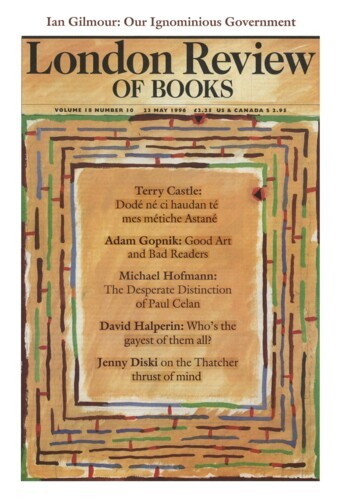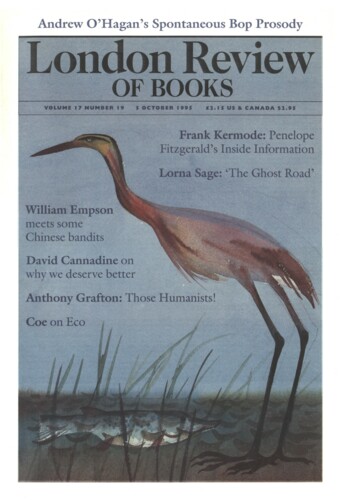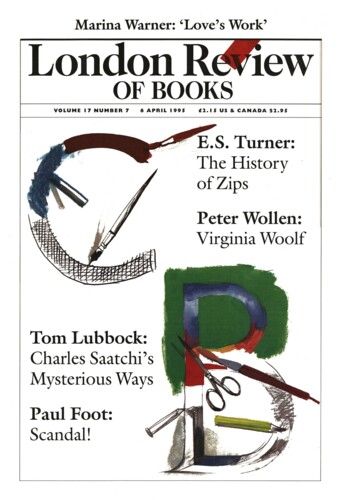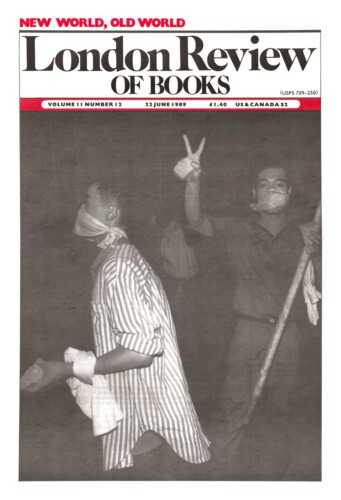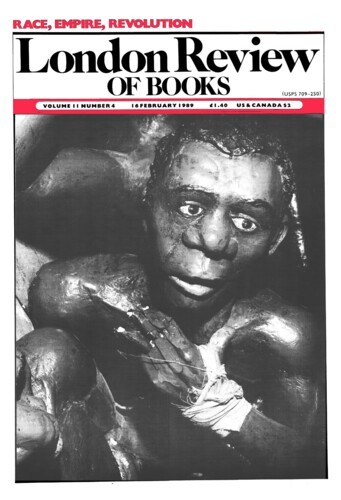Watch with mother
Zachary Leader, 23 May 1996
Being a boy is not always easy. These two childhood memoirs differ in important respects, but they agree about the problematic nature of boyhood pleasure. Gary Paulsen’s ‘Autobiographical Odyssey’ follows in the wake of his 1995 memoir, Winterdance, a much-praised account of dog-sled racing in Alaska. Though he is only now gaining a reputation in Britain, Paulsen has published over 150 books in the United States, many for children and ‘young adults’, specifically boys. His best-known boys’ books are a trilogy of survivalist novels about an urban adolescent, Brian Robeson, stranded in a Canadian wilderness: Hatchet, which sold over a million copies, Hatchet: The Return and Hatchet: Winter, which Paulsen claims to have written in response to fan mail (‘as many as two hundred letters a day’). The themes of these books – isolation, self-reliance, initiation – recur in his new memoir. So, too, do scenes of fantastic adventure and danger. The distinguishing feature of the new memoir – distinguishing it as a book for adults – is its depiction of sex, though this sex involves Paulsen’s mother, so perhaps the memoir, too, counts as a species of boys’ fiction.’
